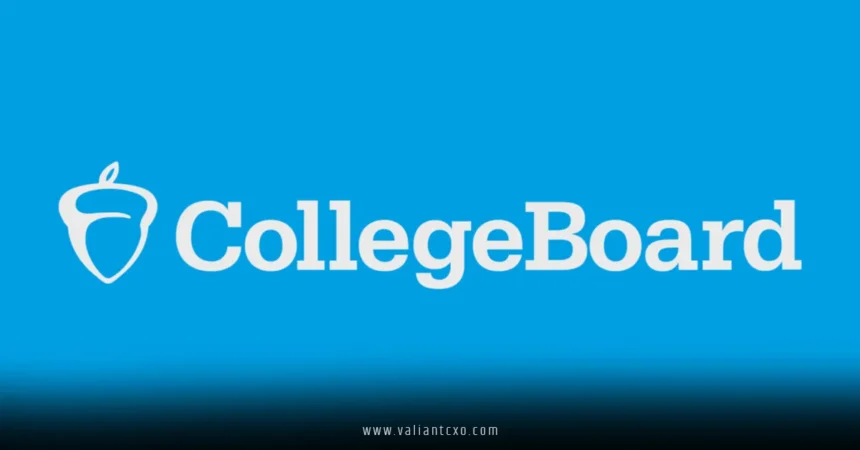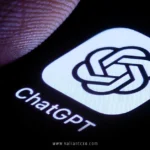Collegeboard is a name that echoes through the halls of every high school, striking both excitement and anxiety in the hearts of students. If you’re a high schooler dreaming of college or a parent guiding your teen through the maze of admissions, you’ve likely encountered Collegeboard. But what exactly is it, and why does it hold such a pivotal role in the journey to higher education? Let’s dive into the world of Collegeboard, unravel its purpose, and explore how it shapes the college application process with clarity and confidence.
What Is Collegeboard? A Quick Overview
Imagine Collegeboard as the Swiss Army knife of college admissions—a versatile tool that helps students, educators, and institutions connect. Officially known as the College Board, this nonprofit organization has been a cornerstone of American education since its founding in 1900. Its mission? To make higher education accessible by providing standardized tools and resources that level the playing field. From the SAT to AP courses, Collegeboard offers a suite of programs designed to prepare students for college and beyond.
But it’s more than just tests. Collegeboard is like a GPS for your college journey, guiding you through assessments, scholarship opportunities, and college planning resources. Whether you’re a first-generation student or a seasoned test-taker, Collegeboard aims to simplify the process. So, how does it actually work? Let’s break it down.
The Role of Collegeboard in College Admissions
Why Collegeboard Matters for Students
Why does Collegeboard feel like it’s everywhere when you’re applying to college? Because it’s the backbone of standardized testing in the U.S. The SAT, one of Collegeboard’s flagship offerings, is a standardized test accepted by nearly every college in the country. It’s a yardstick that admissions officers use to measure your academic readiness alongside your grades and extracurriculars. But Collegeboard’s influence extends beyond testing.
Through its tools, like the SAT and PSAT, Collegeboard helps you showcase your skills to colleges. It also connects you with scholarships and financial aid opportunities, making college more attainable. Think of it as a bridge between where you are now and where you want to be—whether that’s at a state university or an Ivy League school.
Collegeboard’s Key Programs and Services
Collegeboard isn’t a one-trick pony. It offers a range of programs tailored to different stages of your academic journey. Here’s a snapshot of its core offerings:
- SAT and SAT Subject Tests: The SAT is the big kahuna, a standardized test that assesses your math, reading, and writing skills. SAT Subject Tests, though less common now, let you highlight expertise in specific areas like biology or literature.
- PSAT/NMSQT: The Preliminary SAT doubles as a practice test and a gateway to the National Merit Scholarship Program. It’s like a dress rehearsal for the real deal.
- Advanced Placement (AP): AP courses let you tackle college-level material in high school. Scoring well on AP exams can earn you college credit, saving time and money.
- BigFuture: This is Collegeboard’s college planning platform, a treasure trove of resources for researching colleges, exploring majors, and finding scholarships.
- CLEP: The College-Level Examination Program allows you to earn college credit by passing exams in subjects you already know, like a shortcut to graduation.
Each of these programs is designed to empower you, giving you the tools to stand out in the competitive world of college admissions.
How Collegeboard Supports Students and Families
Navigating the SAT with Collegeboard
Let’s talk about the SAT, because it’s often the first thing that comes to mind when you hear Collegeboard. The SAT isn’t just a test; it’s a rite of passage for millions of students. It’s split into two main sections: Evidence-Based Reading and Writing, and Math, with an optional essay. Your score, ranging from 400 to 1600, is a snapshot of your academic abilities.
But here’s the kicker: Collegeboard doesn’t just throw you into the deep end. They offer free resources like practice tests and personalized study plans through partnerships with platforms like Khan Academy. Ever wonder how to boost your score without breaking the bank? Collegeboard’s got your back with tools that make prep accessible to everyone.
Financial Aid and Scholarships Through Collegeboard
College can feel like a financial mountain, but Collegeboard helps you climb it. Their CSS Profile is a financial aid application used by many colleges to award non-federal aid. Unlike the FAFSA, which is free, the CSS Profile has a small fee, but Collegeboard offers fee waivers for eligible students.
On top of that, Collegeboard’s BigFuture platform connects you with scholarships tailored to your background and goals. It’s like having a personal scholarship matchmaker, helping you uncover funding opportunities you might’ve missed. Who wouldn’t want a little extra cash for tuition?
Collegeboard’s BigFuture: Planning Your Future
BigFuture is Collegeboard’s secret weapon for college planning. It’s a user-friendly platform where you can explore colleges, compare costs, and even build a personalized roadmap for your application process. Want to know what it’s like to study engineering at a small liberal arts college versus a big university? BigFuture breaks it down with data-driven insights and student reviews.
The platform also helps you discover majors that align with your interests. It’s like a career quiz meets a college search engine, guiding you toward a path that feels right. For parents, BigFuture offers tips on supporting your teen without turning into a helicopter pilot. Pretty cool, right?
The Impact of Collegeboard on Education Equity
Leveling the Playing Field
Collegeboard’s mission is all about access. They’re not just here for the straight-A students with private tutors; they’re committed to helping everyone, especially underrepresented and low-income students. Programs like fee waivers for the SAT and CSS Profile make testing and applications more affordable. Plus, Collegeboard partners with schools to offer SAT School Day, where students can take the test during school hours at no cost.
Ever wonder what it’s like to be the first in your family to apply to college? Collegeboard’s resources, like their Student Search Service, connect you with colleges looking for students like you. It’s like getting a VIP invite to the college fair.
Addressing Criticism and Challenges
No organization is perfect, and Collegeboard has faced its share of critiques. Some argue the SAT favors wealthier students who can afford expensive prep courses. Others question whether standardized tests are the best measure of potential. Collegeboard has responded by expanding free prep resources and offering test-optional policies in some cases. They’re like a chef tweaking a recipe—constantly refining to meet everyone’s tastes.
Despite the challenges, Collegeboard remains a trusted name in education. Their commitment to transparency, like publishing detailed score reports and test data, builds trust with students and educators alike.
Tips for Maximizing Collegeboard’s Resources
Ace the SAT with Smart Prep
Want to rock the SAT? Start early and use Collegeboard’s free tools. Their practice tests mirror the real thing, so you’ll know exactly what to expect. Pair that with Khan Academy’s personalized study plans, and you’re basically training like an athlete for game day. Pro tip: Focus on your weak areas, whether it’s algebra or reading comprehension, to see the biggest score jumps.
Explore AP Opportunities
If your school offers AP courses, jump in. Not only do they boost your GPA, but high AP scores can earn you college credit, which is like finding money in your pocket. Check with Collegeboard’s AP Course Ledger to see what’s available at your school. Don’t see your dream course? Talk to your counselor—sometimes schools can add new ones.
Use BigFuture Like a Pro
Don’t sleep on BigFuture. Create a profile, input your interests, and let the platform do the heavy lifting. It’s like having a college counselor in your pocket, minus the hourly rate. Save colleges to your list, track application deadlines, and apply for scholarships directly through the platform. It’s a game-changer for staying organized.
The Future of Collegeboard: What’s Next?
Collegeboard isn’t resting on its laurels. They’re constantly evolving to meet the needs of today’s students. The SAT is now offered digitally in many places, making it more accessible and faster to score. Plus, Collegeboard is doubling down on equity with initiatives like expanding access to AP courses in underserved schools. What’s next? Maybe more AI-driven tools or virtual college fairs—who knows? One thing’s clear: Collegeboard is here to stay, helping students navigate the ever-changing landscape of higher education.
Conclusion
Collegeboard is more than a testing organization; it’s a partner in your journey to college and beyond. From the SAT to BigFuture, its programs empower you to showcase your strengths, plan your future, and access financial aid. By leveraging Collegeboard’s resources, you’re not just preparing for college—you’re setting yourself up for success. So, dive into their tools, explore your options, and take charge of your future. The college of your dreams is closer than you think, and Collegeboard is here to help you get there.
FAQs
1. What is the main purpose of Collegeboard?
Collegeboard is a nonprofit dedicated to making college accessible through standardized tests like the SAT, AP courses, and tools like BigFuture for college planning and scholarships.
2. How can I prepare for the SAT using Collegeboard’s resources?
Collegeboard offers free practice tests and partners with Khan Academy for personalized study plans. Start early, take practice exams, and focus on your weak areas to boost your score.
3. Does Collegeboard offer financial aid assistance?
Yes! Collegeboard’s CSS Profile helps students apply for non-federal financial aid, and BigFuture connects you with scholarships. Fee waivers are also available for eligible students.
4. Are AP exams worth taking through Collegeboard?
Absolutely. AP exams can earn you college credit, saving time and money. They also strengthen your college application by showing you can handle rigorous coursework.
5. How does Collegeboard support first-generation college students?
Collegeboard provides fee waivers, free test prep, and tools like the Student Search Service to connect first-generation students with colleges and scholarships tailored to their needs.
For More :valiantcxo.com


